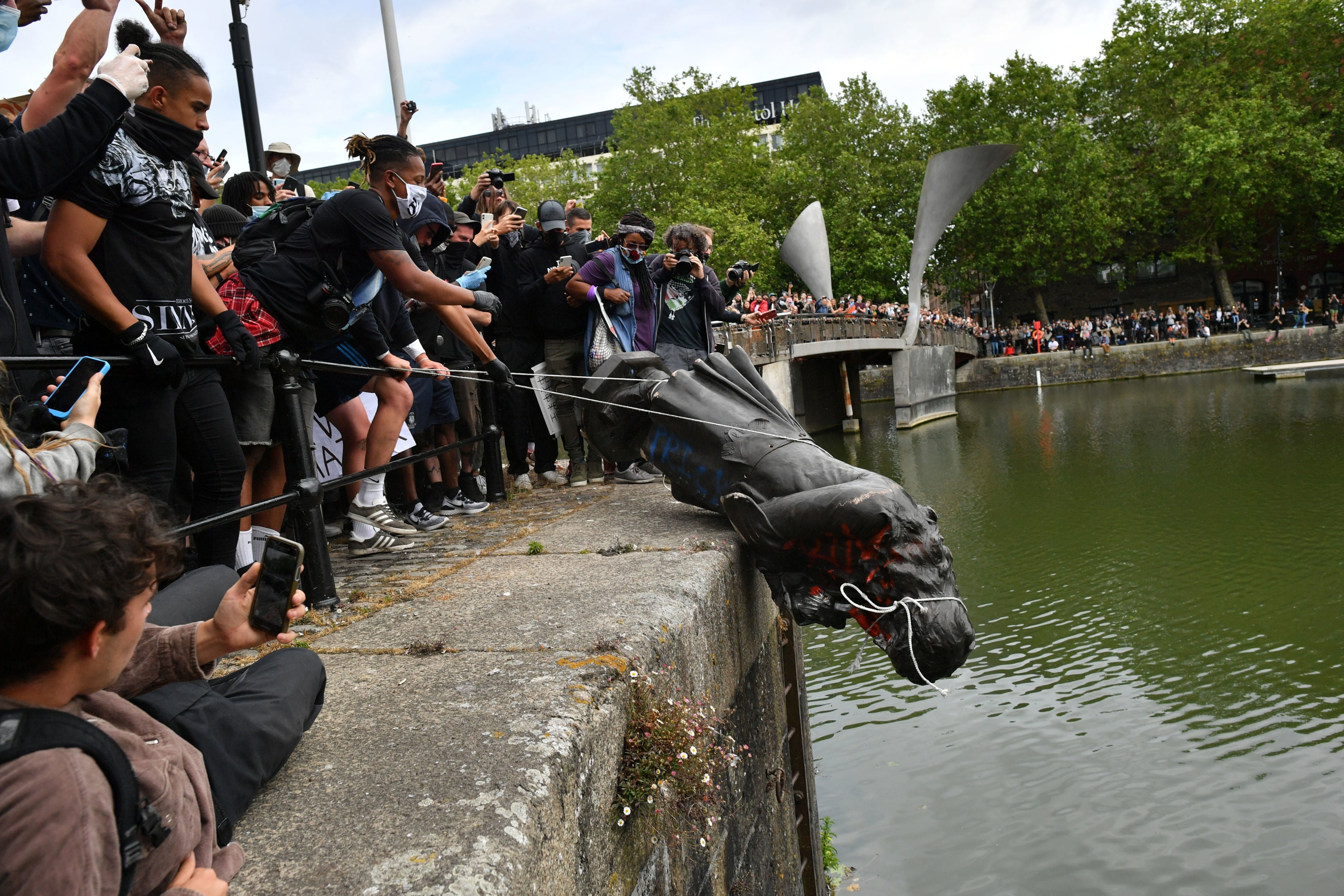Attorney General refers Colston statue case to Court of Appeal to ‘clarify the law’ on protests
Any future ruling will not impact four defendants’ acquittals but Suella Braverman said it was ‘in the public interest to clarify the points of law’

Your support helps us to tell the story
From reproductive rights to climate change to Big Tech, The Independent is on the ground when the story is developing. Whether it's investigating the financials of Elon Musk's pro-Trump PAC or producing our latest documentary, 'The A Word', which shines a light on the American women fighting for reproductive rights, we know how important it is to parse out the facts from the messaging.
At such a critical moment in US history, we need reporters on the ground. Your donation allows us to keep sending journalists to speak to both sides of the story.
The Independent is trusted by Americans across the entire political spectrum. And unlike many other quality news outlets, we choose not to lock Americans out of our reporting and analysis with paywalls. We believe quality journalism should be available to everyone, paid for by those who can afford it.
Your support makes all the difference.The Attorney General has asked judges at the Court of Appeal to clarify the law around whether defendants can use their human rights as a defence when they are accused of criminal damage.
Suella Braverman made the referral in the wake of the acquittals of four people accused of pulling down the statue of slave trader Edward Colston in Bristol during a Black Lives Matter protest.
The bronze memorial was then rolled by a crowd through the streets of the city before being dumped in the harbour.
Rhian Graham, 30, Milo Ponsford, 26, Sage Willoughby, 22, and Jake Skuse, 33, dubbed the “Colston Four” were acquitted of criminal damage despite acknowledging their part in toppling the monument. Any future ruling by the Court of Appeal, however, will not impact the four defendants’ acquittals.
Ms Braverman concluded the case led to uncertainty regarding the interaction between the offence of criminal damage and the rights relevant to protest peacefully.
Jurors were asked to decide if they believed a conviction for criminal damage was a “proportionate interference” with the defendants’ human rights of freedom of expression, thought and conscience.
It was the final question in the “route to verdict” – a series of steps for a jury to follow when deciding if someone is guilty or not guilty.
Ms Braverman said that she had also asked the court to consider whether it was up to juries to decide if a criminal conviction is a proportionate interference with someone’s human rights.
During the trial in December and January of this year at Bristol Crown Court, the four defendants each claimed the statue was offensive and a hate crime towards Bristol’s black community.
Sage Willoughby compared the statue with Nazism, saying: “Imagine having a Hitler statue in front of a Holocaust survivor – I believe they are similar.”
In his directions to jurors, Judge Peter Blair QC said they had to balance the defendants’ human rights against the legislation contained within the Criminal Damage Act.
He said that individuals have the right to freedom of thought and conscience and to manifest one’s beliefs, and the right to freedom of expression.
Judge Blair said: “These rights protect not only beliefs, such as anti-racism, and speech itself, but also actions associated with protest.
“Even where those actions have more than a minimal impact on the rights of other people, they need not result in a conviction. It is all a matter of fact and degree.”
He added limitations on human rights are permitted under laws including the Criminal Damage Act if it is “in the interests of public safety or for the protection of the rights and freedoms of others”.
The issue of human rights was the last question in the “route to verdict”.
The jury was asked if it was sure a conviction for criminal damage would be “a proportionate interference” with the defendants’ “rights to freedom of thought and conscience, and to freedom of expression”.
Jurors were told if they were sure the answer was “yes” the verdict should be guilty, and if “no” it should be not guilty.
Ms Braverman said: “After careful consideration, I have decided to refer the Colston statue case to the Court of Appeal to clarify the law around protests.
“Trial by jury is an important guardian of liberty and critical to that are the legal directions given to the jury.”
She added: “It is in the public interest to clarify the points of law raised in these cases for the future. This is a legal matter which is separate from the politics of the case involved.”
Ms Braverman acted independently of the government, making the decision in the interests of future cases involving the same point of law.
Since 2000, there have been 19 occasions of this power being used by Attorneys Genera. The last time this power was used was in December 2020 when the Attorney clarified the law in relation to sexual assault.
Join our commenting forum
Join thought-provoking conversations, follow other Independent readers and see their replies
Comments